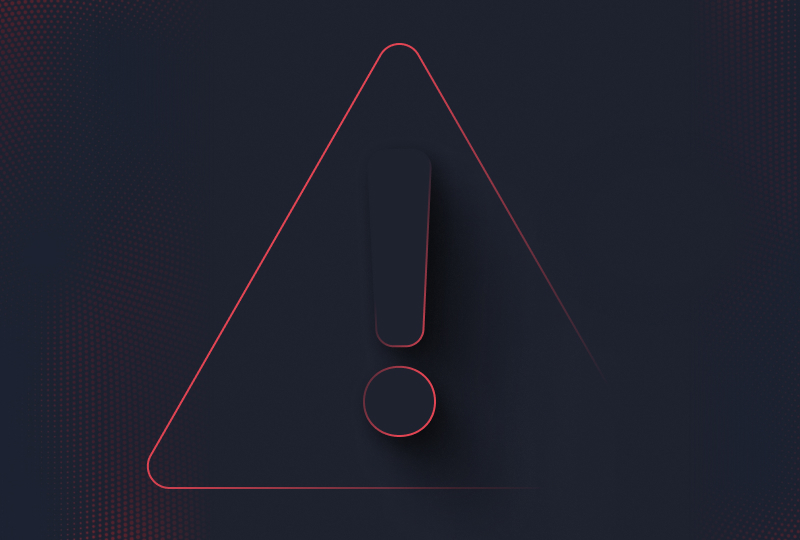2022-01-26

Customer Success Job Description: Customer Success Manager

11 min read
What skills and responsibilities are included in a Customer Success Manager job description and how can you improve your likelihood of being hired?
Let’s first start with, what is a customer success manager?
A Customer Success Manager (CSM) is a part of the customer success team and focuses mainly on the customer's transition between being a sales prospect and becoming an active user of the product.
CSMs ensure clients continue to receive value from the product as they move through the product life cycle. By proactively tackling problems, creating custom solutions, and suggesting helpful upsells, CSMs improve customer retention and help boost the lifetime value of the client.
What Does a Customer Success Manager Do?
In short, the CSM builds lasting client relationships and monitors client health to reduce churn, improve customer lifetime value, and proactively solve client problems.
In an enterprise environment, CSMs may have a few set responsibilities because there are other specialists on the customer success team. CSMs in smaller organizations often have a wide range of responsibilities such as:
Onboarding new customers
For a CSM, onboarding is one of the biggest priorities. A successful onboarding means a low time to value for the client, and a fast product adoption. To succeed, the CSM should initially focus on features that the customer need to learn early on to get an understanding of the product and make sure they realise it’s potential.
Monitoring customer health metrics
By monitoring customer health metrics, a CSM can continuously track their clients as they move along their customer journey and discovers new features of your product. By doing this, you will identify any upsell-opportunities - or risks of churn - early on and can act on it accordingly. To learn more about how to calculate a customer health score, read our blogpost.
Working with multiple departments to solve problems
A problem-solving-attitude is a key trait for any skilled CSM. This includes balancing your clients requests with the wants and needs - and resources – from other internal departments like development or sales.
A platform feature that allows a collaborative environment, like Planhats Customer Portals, and a licensing model with unlimited seating for all different departments, creates a great foundation for any CSM looking to solve their clients minor pain points before they become major problems.
Training new CSMs
In a smaller organization scaling with quality can be very difficult, but is still very important. Therefore, when it comes to onboarding new colleagues and teaching them the platform - so that they can offload some clients from your portfolio - any amount of time you are able to put into training is time well spent. Make sure you have relevant and up-to-date product guides (preferably video) to enable a swift and time efficient training (combined with personal Q&A and guidance, of course).
Boost customer training
More than training any new CSMs joining the team, a CSM needs to boost the training of their clients. Training sets up your customers for success by making it easier for them to make full use of your product.
As they learn more about the possibilities of the product and use it in more sophisticated way, the CSM updates any playbooks and triggers. When the new learnings becomes routines it is time to boost your clients training yet again and move them to the next level of product adoption.
Learning about new product features
To be curious and eager to learn about new product features is another example of a key personal trait for successful CSMs. The software industry is constantly developing, and most likely - so is the software you represent. Therefore make sure you have time in your calendar to learn about new product features and understand how the clients in portfolio can make use of the very same features in their businesses.
Reaching out to customers for upsell opportunities
As a CSM you are not a sales rep, but neither are you a support function. Your job is to help your clients succeed, and often this means reaching out to them to cross-sell or upsell a product feature that would have a huge impact on their business.
Done right and in a proactive and positive way, this doesn’t come across as selling but more as identifying pain points and providing solutions.
What Are Other Customer Success Team Positions?
Other positions on a Customer success team can include:
-
Chief Customer Officer (CCO):
Sometimes referred to as Customer Success Director, this role helps coordinate, plan, and strategize customer-facing activities within the organization. -
Customer Success Management Team Lead:
Team leads manage and guide the CS team. They help CSMs overcome challenges and work with executives to ensure the CS team is hitting its goal. CS team leads often work with heads of other departments to help orchestrate CS at a company level. -
Customer Success Operations Manager:
Operations Managers (CS Ops) work closely with customer success managers (CSM) to optimize internal and external processes. For example, CS Ops may work with the CSM to uncover pitfalls during the onboarding process and develop solutions to fix the issue. -
Technical Customer Success Managers:
Works closely with customers and provides technical guidance and expertise on the use of the software. They are often more heavily involved in the onboarding and solution design. Also works closely with CSMs to ensure proper technical guidance and customer support through the customer lifecycle. -
Enablement Manager:
An enablement manager (often referred to as a customer education manager) is responsible for ensuring that customers understand how to use your software to realize their goals. This is being done by creating content that can train customers to become experts on your product.
Customer Success Manager Job Description Example
To familiarize yourself with the roles and responsibilities of a CSM, below is a typical customer success job description example. While the roles and responsibilities may vary depending on the product or service, you’ll see a pattern start to emerge.
CSMs are both analytical and highly personable, allowing them to act on data while building trust and displaying empathy for clients issues. Customer success managers also have to be an expert on the product or service. Product expertise is needed to solve customer problems as well as present solutions in the form of an upsell.
These unique requirements set CSMs apart from other roles such as technical support or customer service.
Example 1
The Customer Success Manager will oversee the client lifecycle of our Tier 1 and Tier 2 merchants to proactively drive adoption and ensure ongoing customer satisfaction.
Responsibilites:
-
Manage and deepen merchant relationships.
-
Monitor health of merchant experience.
-
Proactively address potential industry and regulatory changes and new products/payment types.
-
Coordinate with internal teams to resolve merchant issues.
-
Provide strong sales support to merchants/partners for all industry target accounts in the book of business.
-
Monitor and report on the activities of competitors and industry changes impactful to merchants and our business.
-
Support product marketing by gathering market/product intelligence from existing and prospective customers.
-
Provide primary strategic account ownership for assigned existing customers.
-
Develop strong professional relationships with key individuals, top decision-makers, consultants, and partners at assigned accounts.
Requirements:
-
2+ years of successful sales/relationship management and business development experience.
-
Prior experience partnering with C-level decision-makers.
-
A high degree of proficiency in MS Office (Word, PowerPoint, Excel).
-
Proven analytical and decision-making abilities.
-
Advanced negotiation, influencing, and collaboration skills.
-
Able to proactively identify business opportunities and persuasively influence both internal and external constituents.
Example 2
The Customer Success Manager will be responsible for the growth and success of a network of community customers for our business within a designated region/market area. Customer communities include a variety of senior living providers, such as assisted living, memory care, independent living, and retirement communities.
Responsibilites:
-
Builds and nurtures relationships with community customers in market and fosters.
-
Drives a quick ramp-up of new community customers and accelerates their effectiveness in being able to convert leads to move-ins.
-
Educates community customers on our value, process, and best practices.
-
Promotes the adoption and consistent use of Community Central (a free, 24/7 online reporting and lead tracking service).
-
Ensures retention of current community customers in the market.
Requirements:
-
3-5+ years of sales/account management experience.
-
Proven problem-solving abilities.
-
Ability to deliver results while working in a highly independent and fast-paced environment.
-
Experience working in a metrics-driven environment is required.
-
Excellent communication and presentation skills.
-
Excellent customer service, coaching, and training skills.
-
Ability to independently organize own work, set priorities, and meet critical time deadlines.
Customer success is a growing industry and the fight for top talent is strong so when it is time to meet the potential candidates make sure you prepare yourself properly. You want to give them a great impression of your company, no matter the outcome of the interview.
In regards to interview questions to ask, consider dividing them into technical product knowledge (what do they now about your product and your industry) and customer success knowledge (what do they know about the day-to-day challenges that a CSM faces, and how do they handle them).
Some examples of questions are:
-
Have you tried our product? If you were to suggest any improvements - what would that be?
-
Upsells is an important part of a customer success manager at our company. How do you approach upsell in your daily routines?
-
What do you think is the three most important things that need to be in place in order to develop a long-term relationship with your customers?
-
Are you a people person? If so, can you give an example of a situation that describes this?
-
What do you think makes your relationship skills better than other customer service reps'?
-
Describe a really good and really bad experience you've had working as part of a team.
-
If a customer is demanding a solution you can't offer (like a refund), how would you respond?
What Skills Should a Customer Success Manager Have?
Customer success managers are a combination of customer service and sales. This means they need to be able to not only quickly solve problems, but understand how to nurture client relationships, and identify how different products can solve their problems.
CSMs need to be both analytical and personable. Customer success takes a data-driven approach that uses client data to anticipate client needs and prevent churn by stepping in quickly when needed.
When it’s time to solve a problem or present a cross/upsell, CSMs need to be able to listen closely and empathize with the clients in order to truly provide the best solution and build trust in the relationship.
All-in-all, a gifted CSM is probably all - or at least a majority - of the following:
-
A skilled communicator
-
A responsible doer
-
Great at time management
-
A natural relationship builder
-
Proactive personality
-
Analytical thinker
-
Have a empathic personality
Salary for Customer Success Managers
The average salary for a CSM in the United States is $75,953 (according to Glassdoor). This number will vary depending on location and skill level.
CSMs are often in a position to move up in the customer success team. Many CSM roles have multiple tiers, allowing staff members to grow within their role or team. Staff looking to specialize may have the opportunity to become Customer Onboarding Manager or Customer Success Specialist.
Books and Resources for Customer Success Managers
If you’re looking to become a CSM or just looking to improve your CSM skills, check out these resources on Customer Success:
-
Planhat Experts: 3 visions for the future of customer success (Webinar)
-
Customer Success Management Strategies & Best Practices (Blog)
-
People Matter: The ROI of a Human-First Approach to Customer Onboarding (Webinar)
How Planhat Can Help
Planhat connects all the customer data, gets actionable insights, and drives actions to manage renewals, reduce churn and boost expansion.
Planhat also provides a unified view of your clients all in one place, identifies risks and opportunities, creates clear, repeatable processes through the customer lifecycle, and offers multi-channel communication as well as customized inboxes for teams.
With Planhat Portals, it is possible to share success plans, playbooks, dashboards, goals, documents, and align on business goals with your clients in a branded Customer Portal.
Altogether, Planhat is a complete Customer platform that lets you track the KPIs that matter the most for the future growth of your business.
You can download our report to learn What's next for Customer Success? or get a Planhat demo!
Join our newsletter!
Receive the latest news, updates, and invitations to our events.
Being data-driven, are we there yet?
Being data-driven should be standard nowadays, but many organizations still struggle with it. Every company wants to be data-driven, but putting it into practice is the tough part.
How to transition from a cost center to a profit center in CS
Many in CS shy away from the commercial aspects of the business, but it's a missed opportunity to keep the conversation moving around maximizing and driving value for customers.
It's worth the risk: Identifying and managing risk in CS
When faced with risk in CS, it’s hard to know what the first step should be. We've developed an actionable plan based on experience from three CS experts.
Learn more about
Planhat
Drop your email and let us show you our platform!











